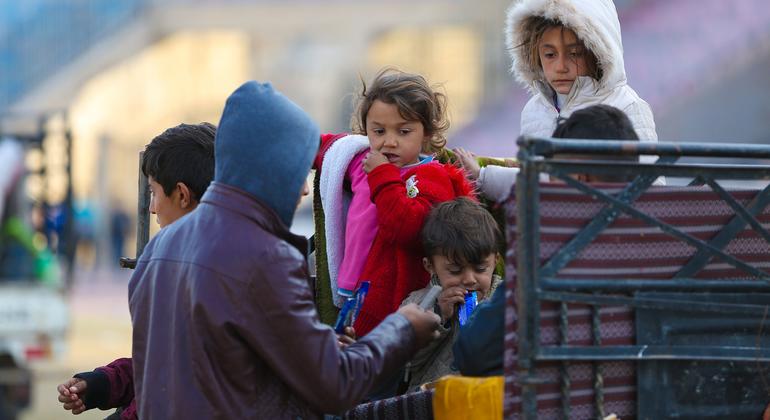When I left as an envoy from the European Parliament to Cairo in 2011, a Barcelona MEP told me that if I succeeded in holding up the Suez Canal, my mission would be successful. That was meant as a joke, of course, but it did draw my attention to the global importance of the Suez Canal and the Red Sea.
But it was only when I was literally standing at the edge of the canal, watching huge container ships sailing uninterrupted to and from the Red Sea, that it dawned on me how important this strait is to our global economy. Between 12 and 15 per cent of total world trade takes this route.
A year later, I visited Djibouti, a small country with a very strategic location, on Bab Al Mandeb, a strait barely 27km wide between the Red Sea and the Gulf of Aden.
There, the latest frigates of the US, French and British military were stationed to chase away Somali pirates. Since 2010, those pirates have been trying to hijack container ships, taking the crew hostage and demanding ransoms. It was an impressive operation in which the West, especially the United States, took on the post-war role of protecting economic sea routes.
However, the Houthi rebels’ attacks from Yemen in the same Bab Al Mandeb strait are of a very different order. They are not pirates seeking extra revenue. The Houthi rebels are an ideologically and politically motivated population group that deliberately wants to crush world trade. With the financial, political and military support of Iran, they are trying to increase pressure on the West to increase pressure on Israel to stop the war in Gaza.
One can also see it in reverse: Iran uses the Houthis, just as it also uses Hezbollah in Lebanon and other militias in Syria and Iraq to use attacks to stop the war in Gaza. The fact that the Houthis are using an Iranian spy ship to hit its targets is proof enough of Iran’s role.
So we cannot help but conclude that Iran, through the Houthis in Yemen, has access to and even partial control over the Red Sea.
The consequence of the Houthi attacks and thus the disruption to world trade is so great that we can hardly estimate the impact. The additional cost of rerouting through the Cape of Good Hope in South Africa has doubled and in some cases tripled the cost per ship.
According to the UN Conference on Trade and Development, better known as UNCTAD, world trade will shrink by five percent by 2024 and food and energy prices will skyrocket. It is unclear how big this effect will be, but the predictions do not look good.
Disaster for China, too
This disruption is also a disaster for China. The country is struggling to revive economically after the endless Covid-19 lockdowns. For China, therefore, these Houthi attacks come at the worst possible time.
The Chinese military could help the US and the UK stop the attacks. Indeed, it has a military base in Djibouti and operates part of the small country’s seaport. It is China’s only foreign military base. Estimates of the number of soldiers in that base range from a thousand to ten thousand. According to China, it is not a military but a logistics base, set up to coordinate evacuations of compatriots in Africa.
That this is not entirely inaccurate was demonstrated by the unexpected outbreak of civil war in Sudan on 15 April 2023. Still, there is little doubt that China too wants to help control global trade in the Red Sea with its military port in Djibouti.
As if the military presence of Iran and China in the Red Sea was not enough to be worried, everything seems to indicate that Russia too will soon have a military base there, and in Sudan. For at least five years, Russian Wagner troops have been present in Sudan. They work there together with the Rapid Support Forces, the RSF. This paramilitary group was given official status by former president Ali Al Bashir after years of operating as a violent militia, the Janjaweed. It is this militia that was responsible for the genocide in Darfur, in western Sudan, between 2003 and 2019, killing an estimated 200,000 people.
The Wagner group, today called the Russian Africa Corps, had two reasons to operate in Sudan: gold and chaos.
They struck a deal with the RSF to sell gold from Sudan’s mines to Russia. In return, Wagner supported the RSF as a counterforce to Sudan’s army.
On 15 April 2023, what had previously happened in Mali, Burkina Faso and Niger happened in Sudan: Wagner-backed forces launched a coup against the incumbent president. The leader of the RSF, Mohamed Hamdan Dagalo, also known as Hemeti, hoped to depose the president, Abdel-Fattah Al Burhan, who is also the leader of the Sudanese army, through a quick coup. This did not succeed immediately, plunging Sudan into civil war.
According to the United Nations, there are indications that another genocide is also under way in Darfur, carried out by the same RSF.
But Russia also has other plans. It wants to build a military base on the Sudanese coast on the Red Sea. Given that the Russian-backed RSF is on the winning side, those plans seem to be getting more and more concrete. In other words, we are moving towards a scenario where Russia, Iran and China (not exactly the West’s best friends) could cut one of the coronary arteries of the global economy, or at least severely disrupt it, with all the economic and political consequences that would entail. That is not a pleasant prospect, to say the least.
What can Europe, and the West as a whole, do to stop this scenario?
It is clear that every conflict carries with it a new conflict. Stopping wars is therefore the only way out. The war in Gaza must urgently stop. The war in Sudan must urgently stop. If Europe and the United States want to, they can put enough pressure on all the warring camps to at least declare a ceasefire and sit at the table.
Actually, it is no longer a matter of wanting, it is a matter of having to.





















Discussion about this post